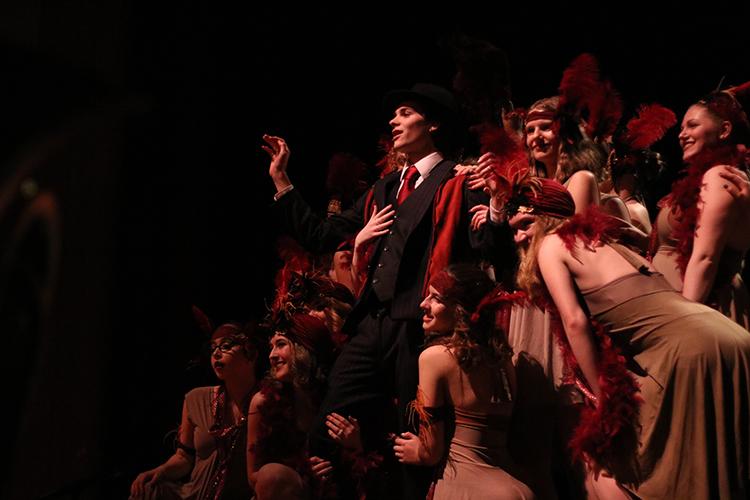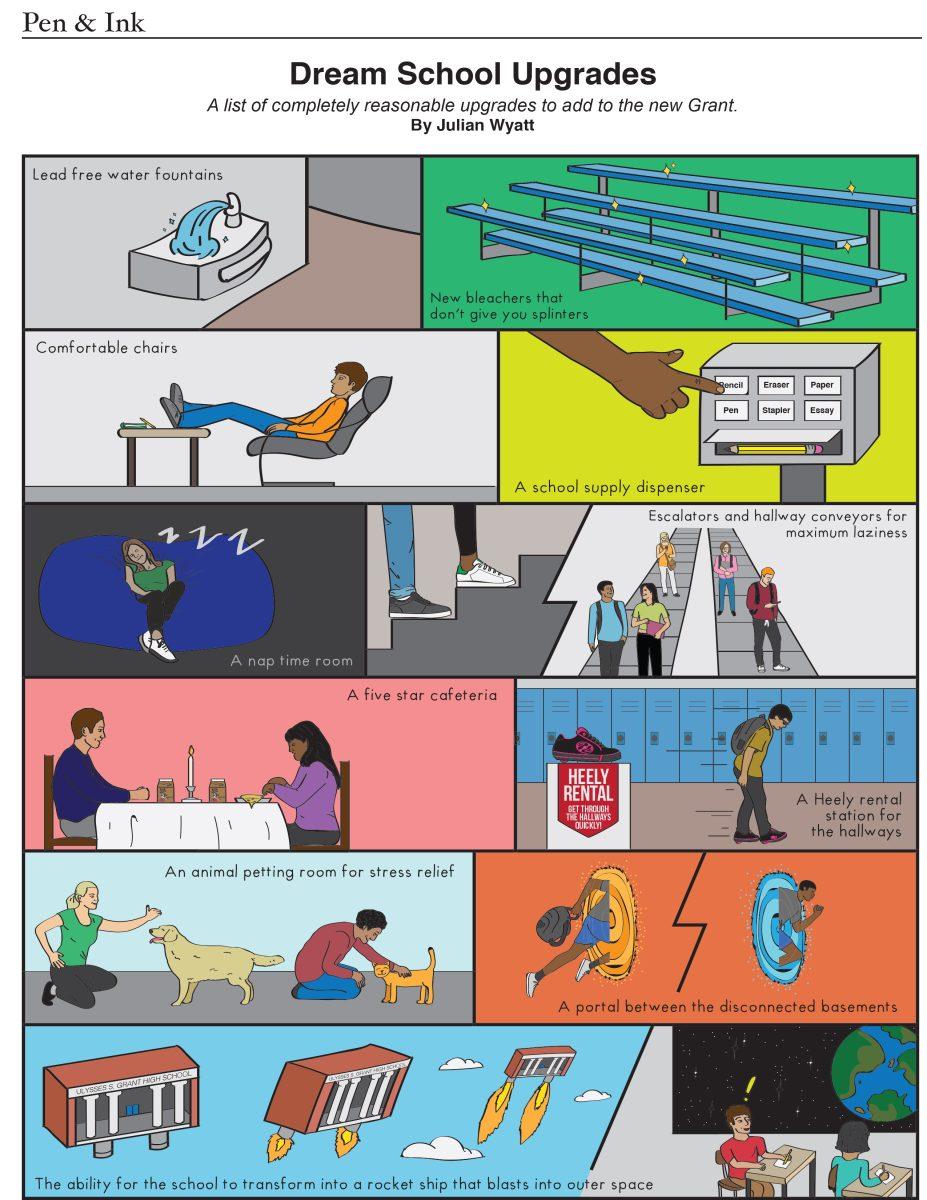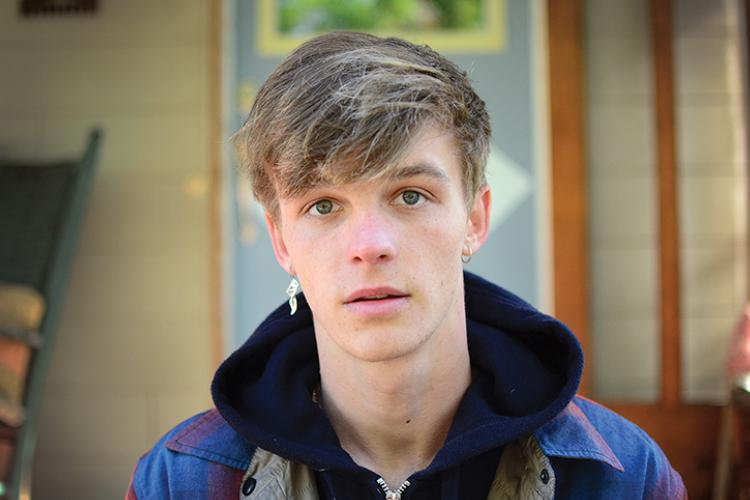It’s a Monday evening in March, and around 70 people are packed into Old Town Brewery Co’s upstairs event space. They eat pizza and chat, and the feel of the room is friendly, almost neighborly, as adults mingle and children dart between legs. “We might be violating some fire codes,” one person jokes.
38-year-old Grant graduate Jamila Singleton Munson addresses the sizable crowd. “I’m running for Portland School Board because I believe that a public education is critical for a healthy democratic society,” she says. “This is going to be quite a fight.”
For three months, Singleton Munson knocked on doors, hosted dinner parties and did interviews, anything and everything to get the word out to voters. After a hard-fought campaign, Singleton Munson was devastated when on May 16, she learned she had lost the election to represent zone 4 on the Portland Public School Board. “I didn’t expect to lose because I’ve had so much support,” she told her supporters at her election night party, “While there were a few opponents, I still always had more supporters.”
But Singleton Munson is still determined to use her expertise from 16 years of working in education and her own personal experiences to create change in the school system. As a former Grant student and woman of color, Singleton Munson feels her perspective is valuable. Had she been elected, she would have been the only African American on the board.
From a young age, she’s had a passion for education. A self-described nurturer, she grew up taking care of everyone, from her two young brothers, to her friends and classmates. “I have an innate desire for people to accomplish their dreams,” says Singleton Munson.
She attended Grant from 1993 to 1997 and noticed stark inequities in the school system. “In order for us to engage as citizens, we have to have a quality education. And unfortunately, I know firsthand this is actually not an outcome that is true for all of us. I really believe in the power of education.”
The loss threw Singleton Munson off, but she won’t let it keep her down. “This was not my plan. My plan was to go into the school board and work for our kids,” said Singleton Munson at her election night party, “Now I have to figure out how to … find another avenue.”

Singleton Munson was born in Berkeley, California in 1979 to Trish Patton. Patton’s work in the hotel industry lead her to relocate from city to city. By the time Singleton Munson reached 9th grade, she had attended nine different schools. “When you move, it’s hard to make new friends. Every year was a new school in a new city,” says Singleton Munson. “The classroom was the place that I latched on to.”
Despite not being able to form lasting friendships with other children, Singleton Munson loved school. She found that the best way for her fit in was to be a good student, since she wasn’t too interested in having a social life.
When Singleton Munson was 6 years old, her mother got remarried to Don Patton, and together they had two sons, Nate and Tyler, who were born in 1987 and 1989. The marriage lasted 6 years, and after the couple divorced, Patton relocated with her three children to Oregon in 1991.
Singleton Munson attended Cooper Mountain Elementary and lived in Beaverton for 6th grade and attended Gregory Heights School in Northeast Portland for grades 7 and 8.
After finishing middle school, Singleton Munson had the option of going to either Madison or Grant.“I personally decided to go to Grant because I felt like Grant was more diverse,” explains Singleton Munson. “I think that was a huge benefit of going to Grant.”
But in 9th grade, Singleton Munson still noticed that something wasn’t right. Upper level classes, including honors courses, were dominated by white students, while lower level classes were populated by black and brown students, she says.
“I think a lot of what I saw was just like generational privilege. Historically, we have just not had high graduation in communities of color, which means we have less people going to college. So first generation students weren’t being encouraged to be in these more advanced places, and nobody was really advocating to make sure they were getting into those more advanced classes,” says Singleton Munson.
Every day after school, she came straight home to babysit her two young brothers while her mother was at work. From 3 to 11 pm every weekday, Singleton Munson was in charge. “Growing up, I was always a caretaker. I’ve been a nurturer for a very long time, that’s something that was just a part of my life journey, my path,” says Singleton Munson.
“She was always a positive force in my childhood,” says Tyler Patton, her youngest brother. “She was a role model for me, I got a lot of exposure to my political views from my sister.”
As a single mother, Trish Patton had to work multiple jobs to raise her three children in their Northeast Portland home. “My mom did everything she could to make sure that we had a roof over our heads, food in our stomachs, and I have gratitude for that,” says Singleton Munson.
When she was 15, she got her first job working at Coffee Cow, a coffee shop on Sandy Boulevard. Singleton Munson continued working at various places throughout high school, including Marshall’s and Meier and Frank. In her eyes, the money her mother made needed to go toward taking care of their basic needs. Anything else, she decided, she would pay for herself.
In her sophomore year, Singleton Munson decided to challenge herself by taking advanced courses, ones that were dominated by white students. She credits her 10th grade math teacher, Barbara Knox, for helping her make this transition. “(Knox) gave me permission to be the student that I really wanted to be. I know the impact of having a teacher who believes in you,” says Singleton Munson, “Teachers have such an important role they play in the way that students are put on a path.”
In 1995, Self Enhancement Inc., a community organization that provides after-school programs for youth, started a leadership program for Portland high schoolers called SEI Pamplin Fellows. Singleton Munson’s peers nominated her for the program her junior year. Through the SEI Pamplin Fellows, Singleton Munson volunteered at the Portland Rescue Mission, helped younger kids in the program with homework and benefitted from the mentorship of many community leaders.
Nikki Thrower, a Grant student who was a year younger than Singleton Munson, was also in the SEI Pamplin Fellows. She remembers looking up to Singleton Munson. “She was not the goof-around type, she was not someone who wasted time,” says Thrower. “It was really common to see Jamila – instead of just hanging out or just doing other things – it was common to see her studying, reading a book or finishing up an assignment.”
There was never any question over whether Singleton Munson would attend college after Grant. She had been talking about going to college since fifth grade. But for Singleton Munson, it wasn’t just about her own personal success. She advocated for her classmates to succeed, too. “When they wouldn’t go to class, I’m like, ‘Why are you not in class? It’s going to affect your transcripts, don’t you care about college?’”
Since money was tight in her family, Singleton Munson knew she’d have to do some heavy-lifting to be able to pay for college. In high school, she applied for 25 scholarships. When her counselor at the time, Carl Solomon, presented her with opportunities, she always took advantage. “She found the path, and she wasn’t going to be deterred. When she became aware of possibilities, she really took off,” says Solomon, “You really couldn’t intimidate her.”
In 1997, Singleton Munson graduated from Grant and was off to University of Oregon. She initially entered as a Sports Marketing Major, but quickly decided to switch to Planning, Public Policy and Management.
When Singleton Munson was in her second year of college, Thrower and other younger SEI Pamlin Fellows members joined her at the University of Oregon. Singleton Munson and Thrower lived together and became fast friends. Thrower remembers Singleton Munson constantly staying in when her friends went out to parties or social events. “She really truly would be studying, or typing away on her computer or paper. That was an okay Friday or Saturday night for Jamila.”

Singleton Munson also became involved with student organizations on campus, as the co-director of the Black Student Union and the multicultural center. To support the university’s goal of increasing student diversity, Singleton Munson talked to students of color in high school about college. She remembers being surprised at how little some high school seniors had thought about college. “I started to get angry, because I’m like, why is nobody talking to them?” She says.
She couldn’t stop thinking about inequities in education. “At the end of college, I realized that I need to do something about what’s going on in our school system,” she says. So after she graduated in 2001, Singleton Munson joined Teach for America, a nonprofit that trains people to be teachers in low-income schools across the country.
She was placed in New York City in the South Bronx at M.S. 201, a middle school that had recently been reconstituted because of poor performance. She taught fifth grade for two years, while also taking classes at Pace University to work towards her master’s degree in teaching.
“It was a large paradigm shift for me,” she says of the experience. “I had to be the one who was really truly responsible for encouraging, advocating for and creating a strong learning environment for students.”
At the school, Singleton Munson noticed how other teachers’ frustration with their lack of resources made them lash out in unfavorable ways. The students, who often had many emotional needs, were talked down to and yelled at, and there were no social workers or counselors at the school to support them.
Her frustration lead Singleton Munson to work for KIPP (Knowledge Is Power Program) public charter schools when her two years of working for Teach for America were over. She spent four years teaching 6th grade science for KIPP in Los Angeles. Then in 2008, she trained to be a principal at KIPP in Houston and was principal of the school for two years.
In 2011, Singleton Munson moved back to Portland. For a year, she worked for the Educational Policy Improvement Center, or EPIC – an organization dedicated to supporting college and career readiness frameworks. Since 2012, she’s been working remotely for Teach for America, as senior managing director of institutes.
Shortly after returning to Portland, Singleton Munson started dating Iron Munson, who graduated from Grant in ‘96. The two didn’t cross paths in high school – “I didn’t have time for a social life,” says Singleton Munson. After dating for four years, the couple married in 2015 and have been together ever since.

In 2014, when Michael Brown was shot and killed by police officer Darren Wilson in Ferguson, Missouri, something ignited within Singleton Munson. “The uprising that came following, that inspired me and started to really activate inside of me,” she says.
So Singleton Munson took action. She started co-hosting dinners with a group called Community for Equity, comprised mostly of educators asking the question, “What can we do to help?” Many people became more politically active after the election of Donald Trump, but for Singleton Munson, Ferguson was the spark.
She became interested in influencing the school system and started watching school board meetings online. The first time she watched one, she was appalled by the lack of urgency and diversity among the members of the board. She decided it wasn’t enough to sit back and watch decisions be made – she wanted to be there, helping to make them.
So in February 2017, Singleton Munson launched her campaign for Portland Public School Board. She teamed up with Hilltop Solutions and set out to reach 110,000 voters. The following months were filled with house parties, fundraising calls, endorsement interviews – campaigning was like having another full time job.
She received endorsements from several notable Portland leaders, like Mayor Ted Wheeler, former Mayor of Portland Sam Adams and Black Parent Initiative President Charles Mcgee. But not all the feedback that Singleton Munson received was positive.
She was critiqued for her involvement with charter schools like KIPP, and her work with Teach for America, which has a truncated training process for its teachers. “I think it actually has some strong ties to my identity, both being a woman, and being a woman of color. There’s people who are writing things about me on social media, saying things like I don’t have the experience, I don’t have the qualifications,” says Singleton Munson, “I’ve done this work for 16 years. Nothing that I’ve done has been easy. And I’ve been successful.”
After the crushing loss on May 16, Singleton Munson is still planning her next steps. She wants to find a way to address racial disparities in the school system head on. “I think it’s okay for us to want to have excellent schools. And I think it’s okay to be really unapologetic in the way that we talk about racial disparities, and the fact that we’re having challenges, because we need to address them,” says Singleton Munson. She also wants to strengthen relationships between schools and community partners.
“It’s still a work in progress,” says Singleton Munson. “I don’t see myself walking away from that work because it’s so crucial.” ◆





































